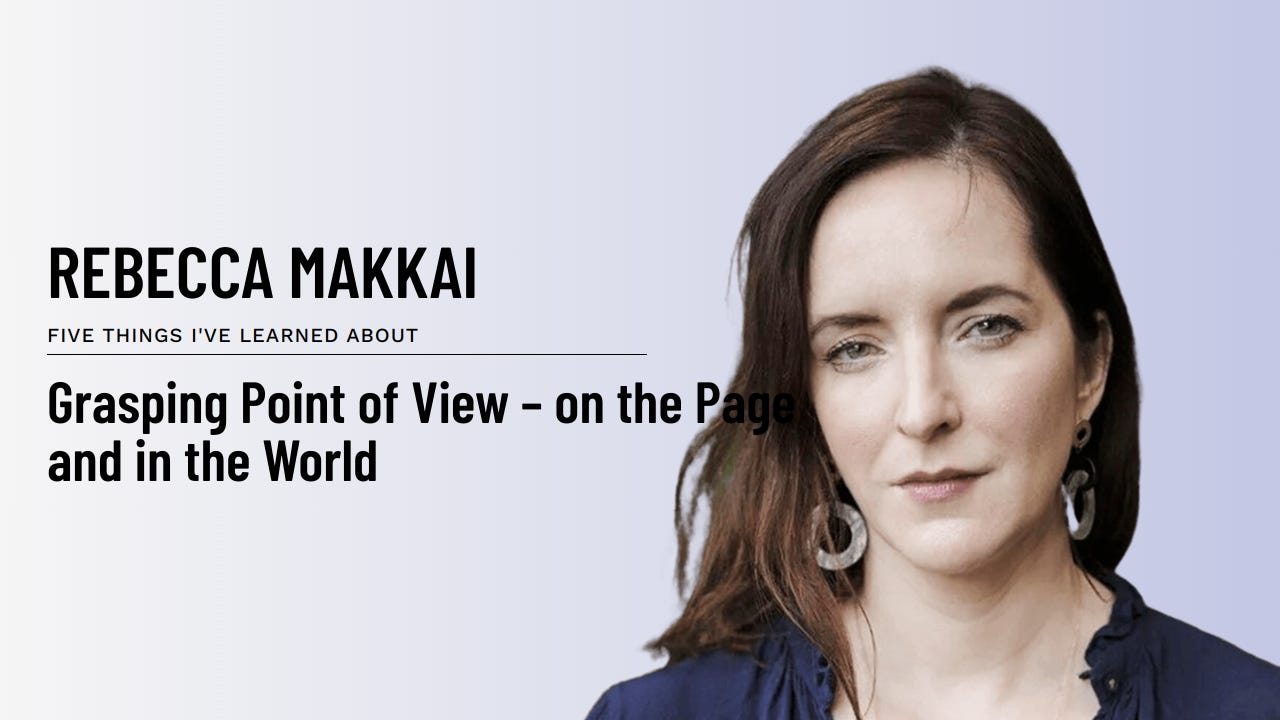Replay: Rebecca Makkai shares Five Things She's Learned about Grasping Point of View – on the Page and in the World
Check out the first five minutes of her recent class.
“As children, we were all encouraged to see things from someone else’s point of view, to “think how she must feel,” to walk a mile in a friend’s shoes. We only have to look around to see that these lessons sank in for some more than others. Yet even those of us who believe ourselves to have great empathy need to sharpen not only our technical skills on the page but our ability to fully imagine a life other than our own. I can’t help but note that in a world in which we struggle to understand each other, those struggles are reflected in our drafts; and I believe that improving the ability to truly see through someone else’s eyes is essential both for being a good writer and for being a decent human.”
– Rebecca Makkai, Five Things I’ve Learned about Grasping Point of View – on the Page and in the World
On February 23rd, Rebecca returned to Five Things I’ve Learned to share Five Things She’s Learned about the issue she’s found most connected to almost early every problem on the page – and why improving the ability to see through someone else’s eyes is essential to being a good writer and a decent human being. Five Things I’ve Learned about Grasping Point of View – on the Page and in the World offers practical tools and insights for mastering point of view in fiction, helping writers deepen their characters’ interior lives and avoid common POV pitfalls.
Rebecca is the New York Times bestselling author of I Have Some Questions for You, The Great Believers, The Hundred-Year House, The Borrower, and the story collection Music for Wartime. A finalist for the Pulitzer Prize and National Book Award, The Great Believers won the Carnegie Medal and the Los Angeles Times Book Prize, and was named one of the New York Times’ 100 Best Books of the Twenty-First Century. A Guggenheim fellow, Rebecca teaches in the MFA programs at Bennington and Northwestern and serves as Artistic Director of StoryStudio Chicago.
Whether you struggle with inconsistent narration or want to push beyond familiar perspectives, this class offers concrete tools and fresh ways of thinking about who’s telling your story—and why it matters. Plus, Rebecca shares exercises and reading recommendations you can return to long after the class ends.
Thanks for being part of Five Things I’ve Learned on Substack. Visit myfivethings.com to view personal video invitations from more than 120 more writers, thinkers, and artists we admire – and to get special discounted pricing with our Five Things I’ve Learned Multi Pass.





